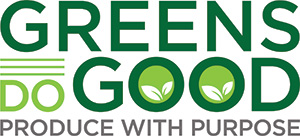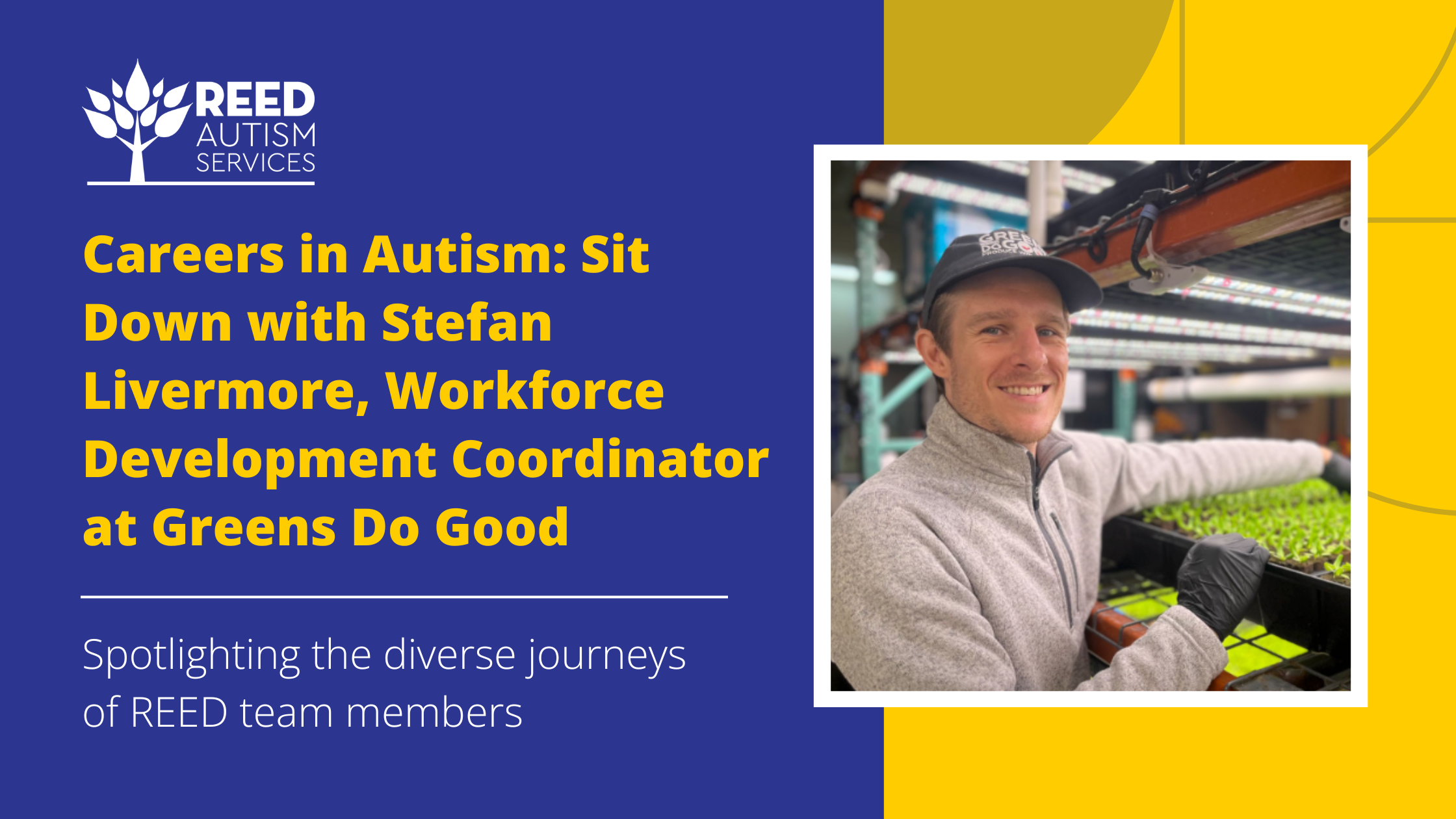In our “Careers in Autism” series, we share the inspiring journeys of REED team members. Here, we’re spotlighting Stefan Livermore, Workforce Development Coordinator at Greens Do Good. Each week, Stefan works with students at the farm, helping them build valuable skills through hands-on job training. His diverse background has made him an essential part of the farm’s mission to empower individuals with autism and highlight their abilities. Read on to learn more about his story!
Your career has uniquely blended therapy, autism services, and indoor farming. How did you find your way to this path, and what inspired you to combine these interests?
My career path has been winding, but I’ll try to summarize it briefly! I began my career after college at a small ABA clinic in New Orleans, where I was inspired by the dedication of my managers to improving the lives of children with disabilities. Upon returning to New Jersey, I struggled to find similarly fulfilling work, which led me back to school to pursue Horticulture Therapy, where I discovered a passion for plant science. This newfound interest led to a position in the Ornamental Plant Breeding Labs at Rutgers, followed by a research role at Aerofarms, the indoor farming company. When I learned about Greens Do Good’s mission, I knew I had found my ideal workplace! To be able to combine all my experience into one role has been a dream.
How has your background in therapy influenced your approach to workforce development at Greens Do Good?
Each student has an individualized plan for skill development. Because of this, someone in my position has to be able to understand how their plans affect their ability to work. Since I have written and implemented many skill acquisition programs, I believe my background in horticulture and ABA provides a unique perspective on how to promote skill developments that align with a career in farming.
What do you find most fulfilling about your work at Greens Do Good?
I find it extremely fulfilling that hundreds of heads of lettuce we sell each week have been seeded, planted, and placed on grow towers by members of our Workforce Development groups. It’s also awesome to hear from teachers and support staff that their students love coming to the farm and ask about it even on their off days. We have worked hard to find and personalize tasks so that each student can feel like they are contributing. It’s tremendously heartwarming to hear that our efforts are paying off.
What skills or qualities do you think are most important for working with individuals with autism?
Patience and a positive attitude are essential. Positivity is infectious, so it can improve the experience for both you and the individual you are working with. For those new to the field, asking questions about treatment protocols can be beneficial. Entry-level work may seem needlessly repetitive in the beginning, but it provides consistency for our participants.
What’s a common misconception about autism that you wish more people understood?
A lot of people are surprised about our mission to train people in the horticulture industry. Anyone who is familiar with this type of work will know that there are tasks that need to happen every day in a uniform way. These types of tasks may grow tiresome to neuro-typical people but for a lot of folks on the spectrum being able to predict what they will be doing daily is extremely comforting. Additionally, I think that it is an innately human trait to want to lead a productive life regardless of brain chemistry!
What role do you think programs like Greens Do Good play in shaping the future of employment for individuals with autism?
With a little creativity and imagination, we can adapt to the needs of individuals living with disabilities and unlock their potential. Our program showcases the incredible accomplishments of its participants, proving that disabilities don’t have to be barriers. For instance, a nonverbal individual can work alongside a talkative colleague harvesting lettuce, while someone with fine motor issues can contribute by labeling containers and preparing seeding stations for someone more dextrous. The possibilities are endless, and our program is leading the way in changing perceptions and demonstrating the value and abilities of all individuals.
What’s something about you that might surprise people?
I only started drinking coffee after spending a gap year volunteering on a coffee farm on the slopes of Mauna Kea in Kona, Hawaii! For three and a half months after high school, I trimmed coffee trees, weeded the fields by hand, and processed the cherries before roasting them. In exchange for my labor, I was given a room (a tent on a coffee drying rack) and free food (mostly rice, beans, and a plethora of tropical fruit that grew wild in the countryside). It was hard labor, but I’ll never forget the view of the mango-colored sunset over the vast Pacific Ocean.
What advice would you give to someone trying to build a career that brings together multiple passions, like you have?
Viewing your current role as a stepping stone to your dream job is key. By recognizing how your current skills and experiences align with your desired role, you can create a clear career path. This can motivate you even during challenging tasks, as it gives them purpose. You may also become more proactive, seeking growth opportunities and building relationships to support your advancement. Ultimately, connecting your current experience with your ideal role transforms your job into a purposeful step towards your career goals, increasing your chances of success.
Considering a career in autism? Learn more about the many opportunities at REED Autism Services.

